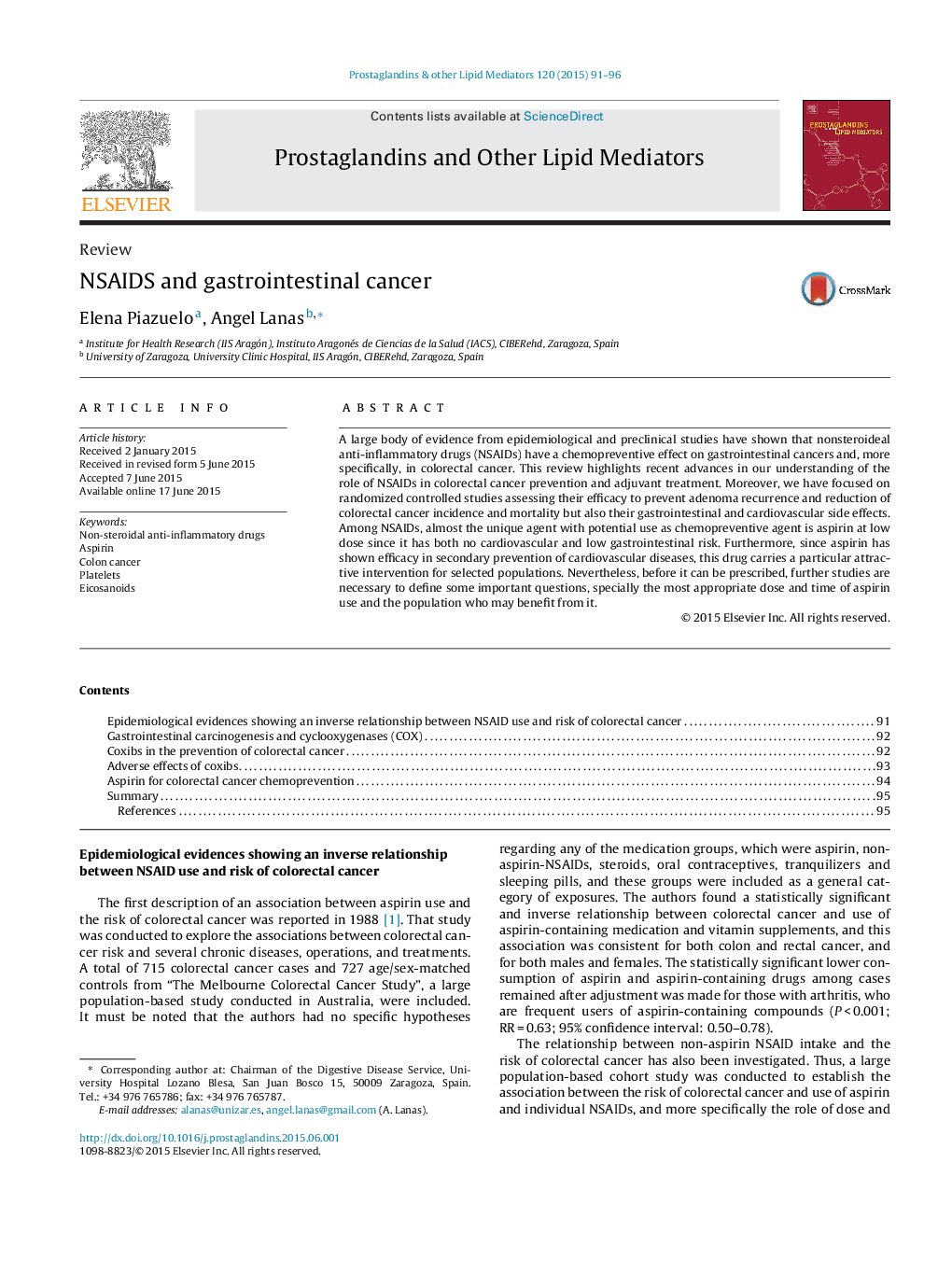| Article ID | Journal | Published Year | Pages | File Type |
|---|---|---|---|---|
| 2019546 | Prostaglandins & Other Lipid Mediators | 2015 | 6 Pages |
Abstract
A large body of evidence from epidemiological and preclinical studies have shown that nonsteroideal anti-inflammatory drugs (NSAIDs) have a chemopreventive effect on gastrointestinal cancers and, more specifically, in colorectal cancer. This review highlights recent advances in our understanding of the role of NSAIDs in colorectal cancer prevention and adjuvant treatment. Moreover, we have focused on randomized controlled studies assessing their efficacy to prevent adenoma recurrence and reduction of colorectal cancer incidence and mortality but also their gastrointestinal and cardiovascular side effects. Among NSAIDs, almost the unique agent with potential use as chemopreventive agent is aspirin at low dose since it has both no cardiovascular and low gastrointestinal risk. Furthermore, since aspirin has shown efficacy in secondary prevention of cardiovascular diseases, this drug carries a particular attractive intervention for selected populations. Nevertheless, before it can be prescribed, further studies are necessary to define some important questions, specially the most appropriate dose and time of aspirin use and the population who may benefit from it.
Related Topics
Life Sciences
Biochemistry, Genetics and Molecular Biology
Biochemistry
Authors
Elena Piazuelo, Angel Lanas,
